Our website – Hand & Heart – is named after a story by Victorian writer, Elizabeth Gaskill, who lived in the area.
The family house on Plymouth Grove, on the corner with Swinton Grove Park, was restored five years ago and last month I visited for the first time.
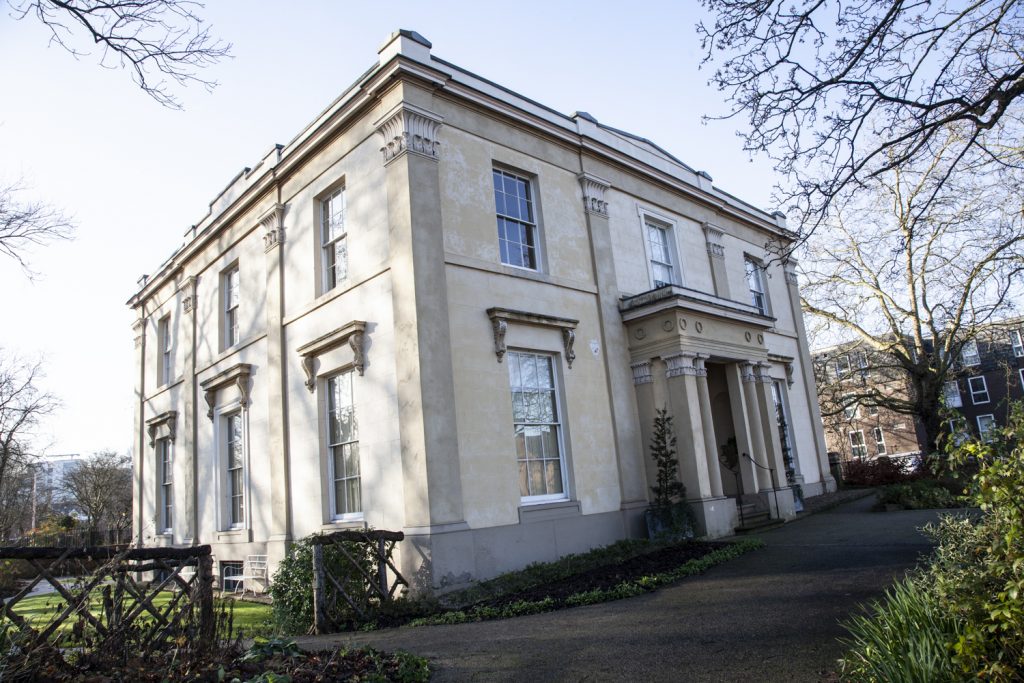
Stepping from the entrance hall into the book-lined study I was immediately transported back into the Victorian Manchester of the 1850s. That was, of course, Manchester’s heyday. The city was a magnet for agricultural workers attracted by the regular but gruelling work in the many new mills and factories. Manchester had became known around the world as the birthplace of the Industrial Revolution.
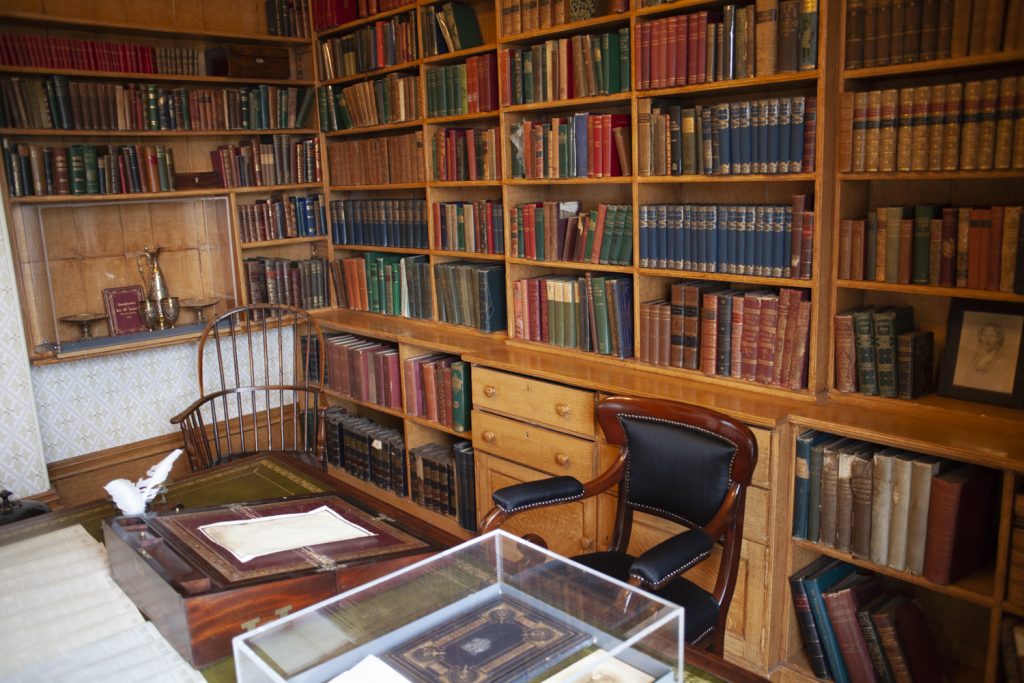
Back then the picturesque Plymouth Grove was out of town, on the edge of upmarket Victorian Park where the wealthy entrepreneurs built extensive villas to escape the city’s dirt and smoke.
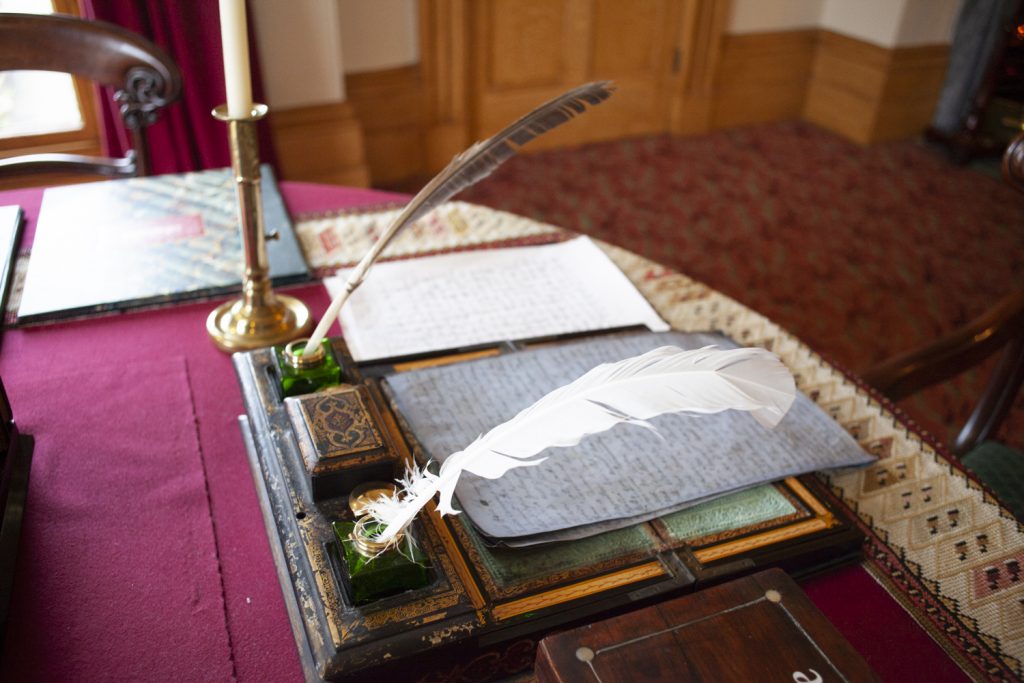
After a wander around the house – noting the table at which Elizabeth wrote – I sit in the basement tearoom with one of the friendly volunteers and ask about this remarkable woman.
“Being a writer, a minister’s wife, a mother, she must have been quite an extraordinary woman in her day,” I suggest.
“She was, yes” says Jane, a retired librarian who’s volunteered since the house was opened. “The extraordinary thing about Mrs Gaskill was the range of things she managed to do. She was very maternal. Her priority was always her children and making sure they were well educated and had opportunities.
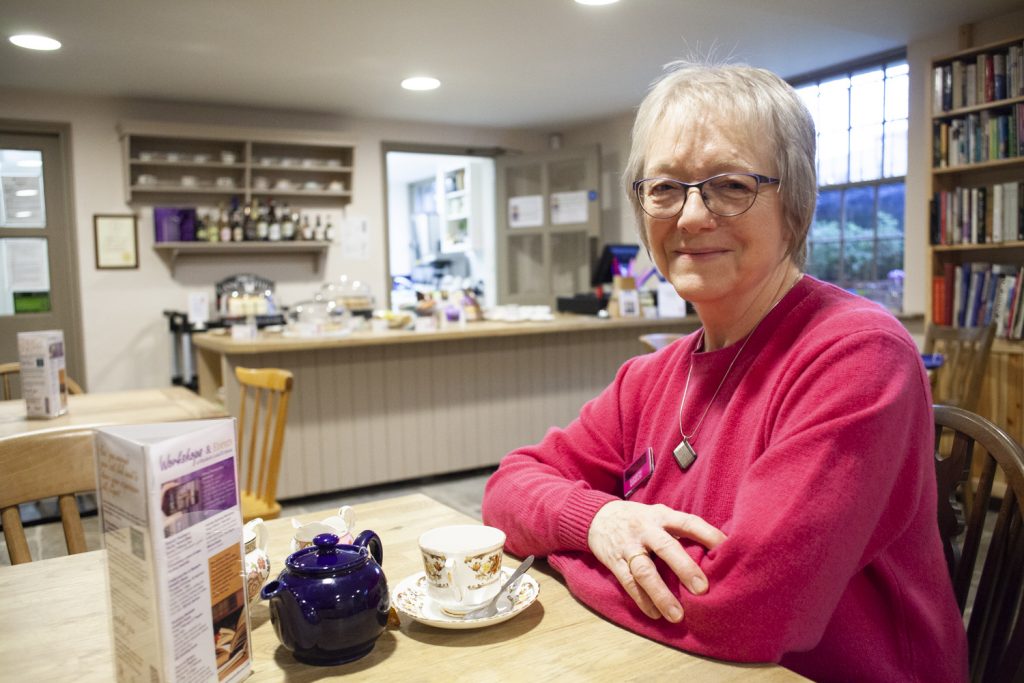
“She was also a supportive wife to William in his ministerial duties but also managed to write very successfully. She made a lot of money from her writing, but also spent a lot as well.”
Elizabeth lived at 84 Plymouth Grove from 1850 until her death in 1865 (age 55) and wrote her most famous work here: Cranford and North and South, were each adapted for TV several times. The short story, Hand and Heart was written in 1849, while the family were still living closer to the city centre.
“Elizabeth and William were very concerned about the conditions of the working classes weren’t they?” I ask. “Were they some of the first social justice campaigners?”
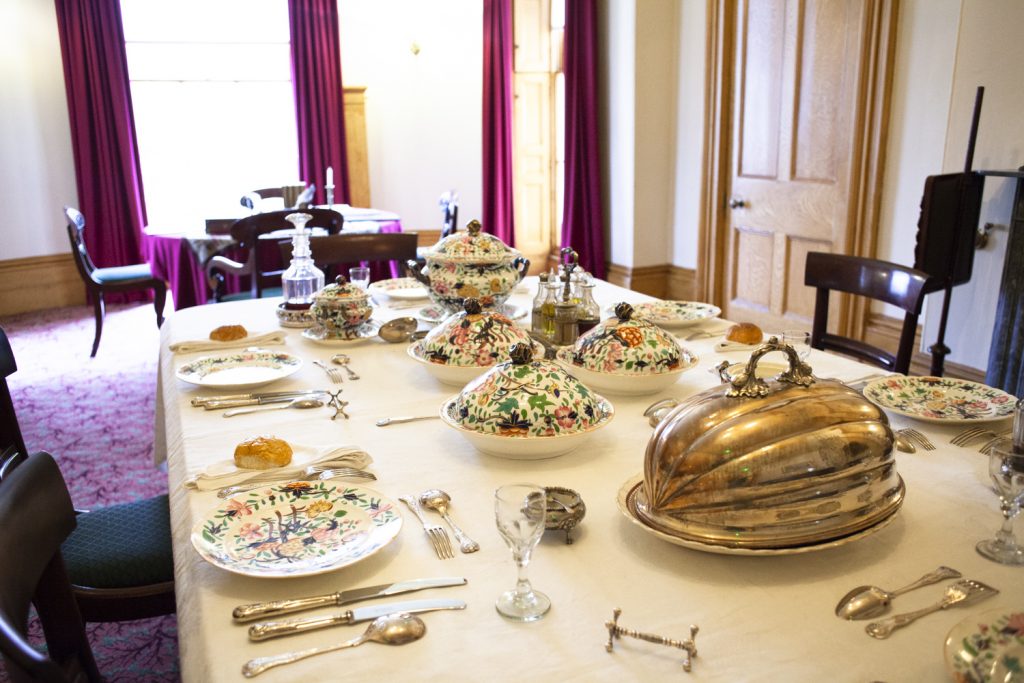
“Elizabeth highlighted the awful living conditions of local workers in her writing, particularly in her first novel Mary Barton,” continues Jane. “She taught a Sunday school, mainly for young girls, and would go on prison visits. William was very involved in some of the first interventions to improve working people’s lives.”
William outlived his wife by 20 years and the house was left to their two unmarried daughters who stayed at 84 Plymouth Grove for the rest of their lives.
Elizabeth Gaskill House is open Wednesday, Thursday and Sunday 11.00-4.30.
Adults: £5.50
Senior citizens and students: £4.50
Children (under 16) are free when accompanied by an adult.
In September visitors can pre-book for a free Heritage Day tour.
